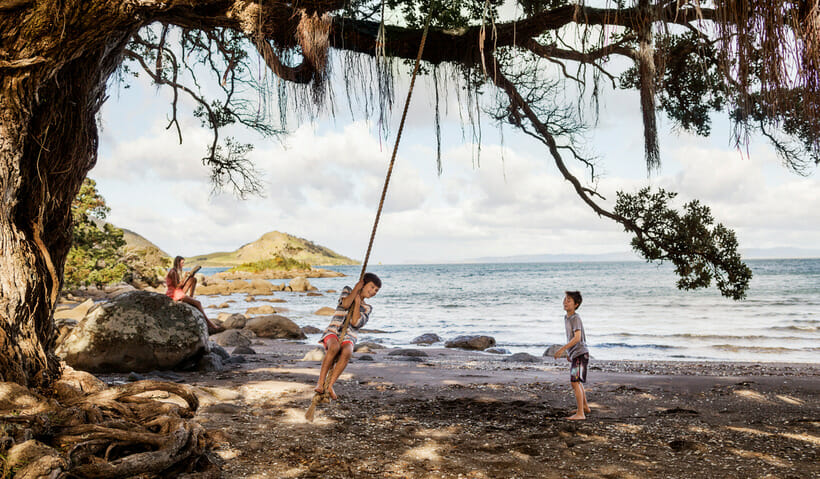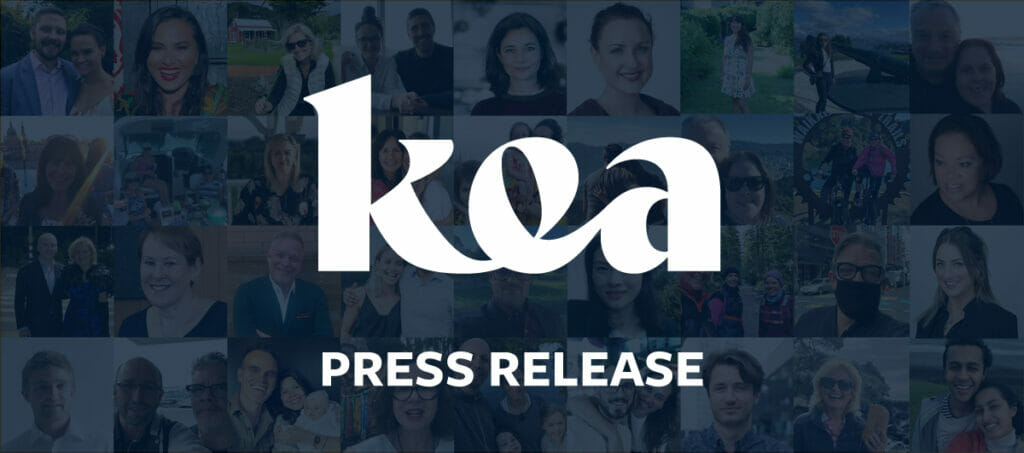
Educational support starts early.
Early childhood education, while not compulsory, is widely available in varying forms from play centres where parents participate in care to full day drop-off daycare. For children aged three and four, the first 20 hours a week of early childhood education is funded by the New Zealand government regardless of means. As you may expect, some centres run long waitlists while others have standing availability, and not every type of care is available in every neighbourhood.
We toured a spotless daycare centre reminiscent of popular US daycare chains. We visited a couple of darling Montessori preschools offering short hours and intimate classroom setting. And we joined circle time at a bright independent preschool set up in church hall.
Ultimately, my toddler has settled quickly into a community childcare centre where there is plenty of outdoor space, caring staff, and a very natural mix of age-groups interacting freely. They invite lots of creative (and messy!) open-ended play and even lead the children through weekly walks in the nearby bush.
Choose the primary school that’s best for your family.
Children typically start year one at primary school on or near their fifth birthday, regardless of when it falls in the year, though parents may opt to start a child at age six. There are 13 ‘Years’ in the New Zealand system, divided into two (primary, college) or three schools (primary, intermediate, college), depending upon the zone.
For state (public) schools, enrolment is determined by a geographic zone with some schools accepting applications from students outside their catchment area. There are also private schools with offerings ranging across secular and religious models.
While part of the national system, even state schools develop their own culture based upon the community and school leadership, and not every school will be a good fit for every family.
At each of the schools we considered, we were able to meet and interview the principal, tour the grounds, and briefly observe classrooms. One school offered new buildings and visible technology; another had a great community feel and beautiful play fields; and a third offered a strong reputation and established teaching staff. It can be hard to sort through the pros and cons particularly when the decision is wrapped up in housing pros and cons as well.
My school-aged children are at our local primary school. We love that we can walk them to school and have been able to meet people from our immediate neighborhood by participating in the walking school bus program, in which children from multiple families walk to school together and parents take turns leading the effort. At school, the staff have been incredibly supportive of our wish that the kids spend the first few months emphasising socialisation after the long lockdown they endured in the US.
Education goes beyond academics.
State schools follow a national curriculum overseen by the Ministry of Education, which is focused on giving students a broad general education. Students tend to move through year levels with similarly aged peers, and teachers adapt curriculum to the ability of the student.
New Zealand culture is a big part of the learning experience. Maori culture (tikanga Maori) and language (te reo Maori) are integrated into the curriculum in most schools, starting in early childhood education. Key national values show up in the way that schools reward their students and operate classrooms. For example, particularly at the primary level, I’ve observed that students are more likely to be given recognition for treating their peers kindly than for getting a perfect score on an exam. Kids are also taught humour and good hearted cheekiness from the early years.
Outside of the classroom, kids are encouraged to participate in sport, through both robust physical education and extracurricular activities. Although competition is often present, there is emphasis on working as part of a team and on good sportsmanship. When the effort is what’s rewarded, the outcome becomes less important.
The academic year is the calendar year.
It has taken a bit of adjustment to get my head around the Kiwi school year: it begins in late January or early February and ends in mid December. There are four terms with a 2-week break between terms and national and regional holidays sprinkled throughout the year.
No shoes, no problem.
School uniforms are widely compulsory in New Zealand, particularly for teens in college (high school). In Auckland, uniforms are standard down to primary level with just a few schools not requiring them. The extent of the uniform varies.
At the same time, shoes are optional. If you turn up at any primary school (or park!) in New Zealand, you’re bound to run across barefoot kids. I’ve found that a strong permanent fabric felt pen is key to making sure your child’s complete uniform comes home each day!
Sun protection is part of everyday life.
Sun protection is key to staying safe from burns for much of the year. During the risk period, which varies by geography, schools and daycares require hats, and application of a long-lasting sunscreen becomes part of the morning routine for everyone. Fortunately, peer pressure works well for kids getting accustomed to this necessity.
More time for family.
The relaxed culture, shorter business hours, and – more recently – increasing flexibility to work from home means more time to spend as a family. It’s common to see parents walking children to and from school in urban and suburban areas and to hear parents finishing their last bits of work from the playground in the late afternoon.
It’s no wonder that New Zealand has earned the reputation of being a family friendly place to both visit and live.
Thanks to our partners at Mobile Relocation for this piece. Amanda Sadlier is a lawyer who writes, runs, and lives with her family in the eastern bays of Auckland with her partner, George, and their three young children. Mobile Relocation is thrilled to host Amanda as a guest blogger for this post.
COMING HOME?
Resources
We’re here to support returning Kiwi. Here’s our list of resources to help you plan your return and next steps.
Jobs
Looking for a new role in New Zealand? Visit the Kea job portal and find your next career opportunity.

 MENU
MENU










